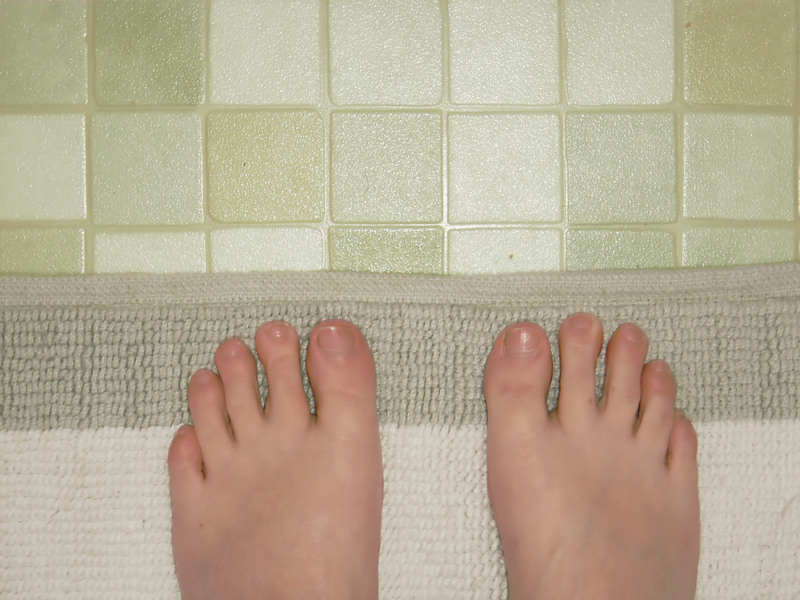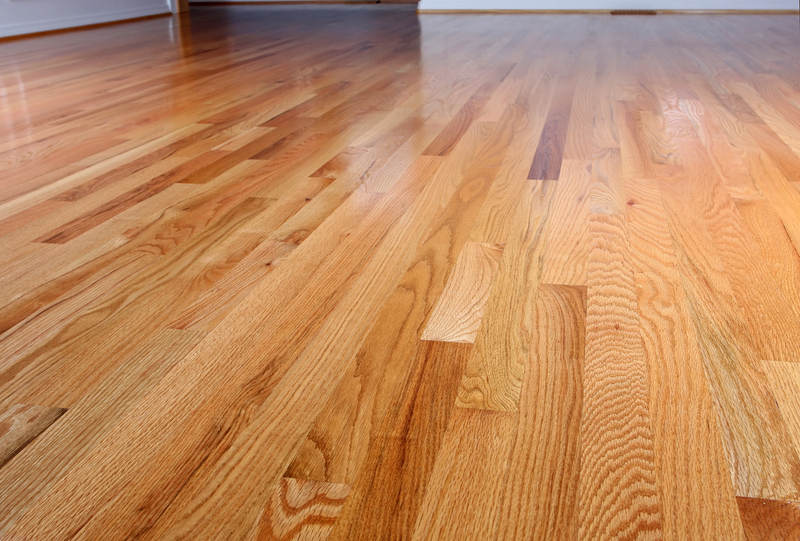Eradicate Damp Smells: Expert Tips for a Grime-Free House
Posted on 04/09/2025
Eradicate Damp Smells: Expert Tips for a Grime-Free House
Are you tired of walking into your home only to be greeted by unpleasant damp smells? Unwanted odors can make any house feel uninviting and may even indicate underlying grime or moisture problems. Eradicating damp smells doesn't have to be daunting with a proactive approach and practical knowledge. In this comprehensive guide, discover expert tips for eliminating musty odors, preventing mold, and ensuring your living space remains fresh, clean, and wholly grime-free.
Understanding the Source of Damp and Musty Smells
Before addressing damp odors, it's critical to pinpoint their root cause. Simply masking the smells won't solve the issue. Common culprits include:
- Excess moisture from leaks or condensation
- Poor ventilation in bathrooms, kitchens, or basements
- Old carpets and upholstery absorbing humidity
- Mold growth behind walls, under floors, or in ceiling cavities
- Neglected cleaning routines leading to dust and grime accumulation
Addressing the source instead of symptoms is the key for a real grime-free and fresh-smelling home.

Common Places Where Damp Smells Lurk
Identifying where damp odors originate will enable you to effectively tackle the issue. Keep an eye out for these problem areas:
- Basements and cellars - These are notorious for harboring moisture and developing mildew.
- Bathrooms and laundry rooms - Inadequate ventilation leads to persistent dampness and lingering odors.
- Kitchen - Steam, spills, and food waste can contribute to a musty smell if not properly managed.
- Bedrooms - Old mattresses, carpets, and poor air flow allow mold and grime to accumulate.
- Closets and cupboards - Closed spaces with little air circulation are prone to mustiness.
Expert Tips to Eradicate Damp Smells for Good
1. Ventilate Your Home Regularly
Proper ventilation is your first line of defense in eliminating musty odors and excess humidity. Open windows daily, especially after activities that increase indoor moisture, such as showering or cooking.
- Use exhaust fans in bathrooms and kitchens.
- Consider air bricks or trickle vents for ongoing airflow.
- Install dehumidifiers in persistent problem areas.
2. Locate and Eliminate Hidden Moisture Sources
Leaks--no matter how small--are a major reason for damp, musty smells. Inspect your home for:
- Leaky roofs and walls
- Dripping pipes beneath sinks and behind appliances
- Poorly sealed windows and doors
- Foundation cracks and insufficient drainage outside the house
Promptly fix leaks and dry out affected areas. Don't ignore small drips--they can quickly escalate into mold problems.
3. Clean Thoroughly and Frequently
A grime-free house is a smell-free house. Develop a regular cleaning routine using these best practices:
- Wash textiles (curtains, bedding, upholstery, and rugs) at least quarterly
- Vacuum carpets and floors weekly to remove dust and prevent matted grime
- Wipe down surfaces, especially in high-humidity zones such as bathrooms and kitchens
- Empty bins and clean drains to prevent lingering food or waste odors
4. Use Natural Deodorizers and Desiccants
For a chemical-free approach to banishing damp smells, try these effective options:
- Baking soda - Sprinkle on carpets, shoes, or upholstery to absorb odors; vacuum after a few hours
- Charcoal briquettes - Place in bowls or bags in musty rooms to neutralize smells
- White vinegar - Set out bowls to absorb odors or use as a cleaning agent
- Salt or silica gel - Use to draw moisture from wardrobes or cabinets
5. Clean and Maintain Your HVAC System
HVAC units and air ducts can collect dust, mold, and moisture, circulating damp air throughout your home.
- Clean or replace air filters every 2-3 months
- Schedule professional duct cleaning annually
- Ensure air vents are unobstructed
6. Combat Mold Growth Head-On
Mold is a major culprit of stubborn musty odors. Look out for black, green, or white patches on walls, ceilings, or furniture.
- Remove small patches yourself using a solution of water and white vinegar or specialized mold removers
- Never mix bleach with other chemicals as toxic gases may form
- If mold affects large areas (>1m?), call a professional mold remediation service
7. Tackle Soft Furnishings and Carpets
Soft furnishings trap moisture and odors, becoming breeding grounds for bacteria and mold.
- Shampoo or steam-clean carpets regularly
- Dry wet carpets or upholstery immediately
- Consider replacing old, musty textiles if cleaning fails
8. Address Issues With Rising Damp and Condensation
Persistent moisture at ground level or on walls can create a humid, grime-attracting environment. Signs include peeling paint, tide marks, or crumbling plaster.
- Improve drainage around your home
- Check for faulty damp-proof courses in older properties
- Insulate cold surfaces to prevent condensation
- Use moisture-absorbing products on affected walls
9. Keep Closets and Storage Dry
Wardrobes and cabinets often harbor musty odors due to poor air flow.
- Leave closet doors open occasionally
- Use cedar blocks or mothballs (with caution) for odor prevention
- Regularly declutter and reorganize so air circulates freely
- Add silica gel packs or open containers of baking soda in drawers and small spaces
Prevent Future Damp Smells: Proactive Maintenance Tips
The most effective way to keep your home grime-free and odorless is through preventative care. Here's how to break the moisture-and-odor cycle:
- Inspect roofs, gutters, and downpipes annually to prevent leaks
- Repair cracked seals or faulty plumbing as soon as issues arise
- Keep humidity below 60% with a hygrometer, especially during wet seasons
- Dry laundry outside or use well-ventilated areas
- Store unused items off the floor and away from walls in cool, dry areas

Frequently Asked Questions: Eradicating Damp Smells
Why does my house smell musty even after cleaning?
Persistent musty odors may indicate hidden mold or dampness not addressed by surface cleaning. Check for leaks, moisture under carpets, and in walls or ceilings.
Are air fresheners enough to eliminate damp smells?
No. Air fresheners only mask odors temporarily. To truly eradicate damp smells, you must remove the source of moisture and grime.
How can I stop my basement from smelling damp?
Increase ventilation, use a dehumidifier, seal any foundation cracks, and check for plumbing leaks. Store items off the floor and use natural odor absorbers like baking soda or charcoal.
Can house plants help with musty air?
Some house plants can help purify air and reduce humidity, but they are not a substitute for identifying and fixing sources of damp and grime.
What cleaning products are best for removing grime and odors?
Opt for enzyme cleaners, vinegar solutions, or specific anti-mold sprays. Steam cleaning is also effective for deep sanitization of carpets and upholstery.
Final Thoughts: Enjoying a Damp-Free and Grime-Free Home
Eradicating damp smells isn't about a quick fix--it's a journey towards a healthier, more enjoyable living environment. By identifying sources, improving ventilation, maintaining rigorous cleaning routines, and using natural deodorizers, you'll break the cycle of grime and musty odors for good.
Remember, a clean, fresh-smelling home enhances wellbeing, prevents structural problems, and makes your space welcoming for everyone. With these expert tips, you can confidently say goodbye to damp problems and embrace a permanent, grime-free lifestyle.
Take Action Today:
- Start with a room-by-room inspection for hidden moisture
- Use a combination of cleaning, dehumidifying, and odor-absorbing techniques
- Stay proactive--prevention keeps your home fresh and inviting all year round
Now go ahead--take charge and enjoy your revitalized, odorless, and grime-free sanctuary!
```



